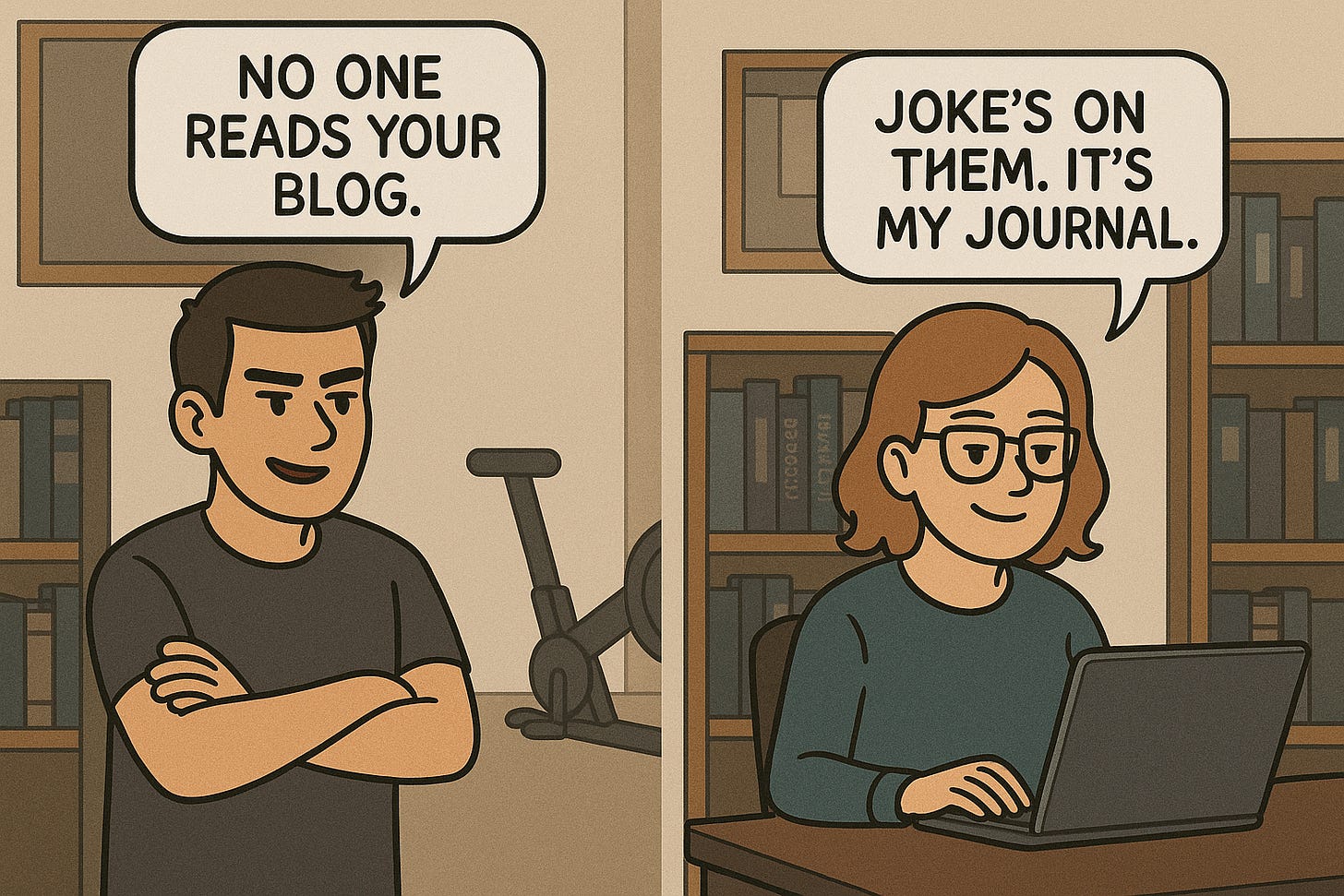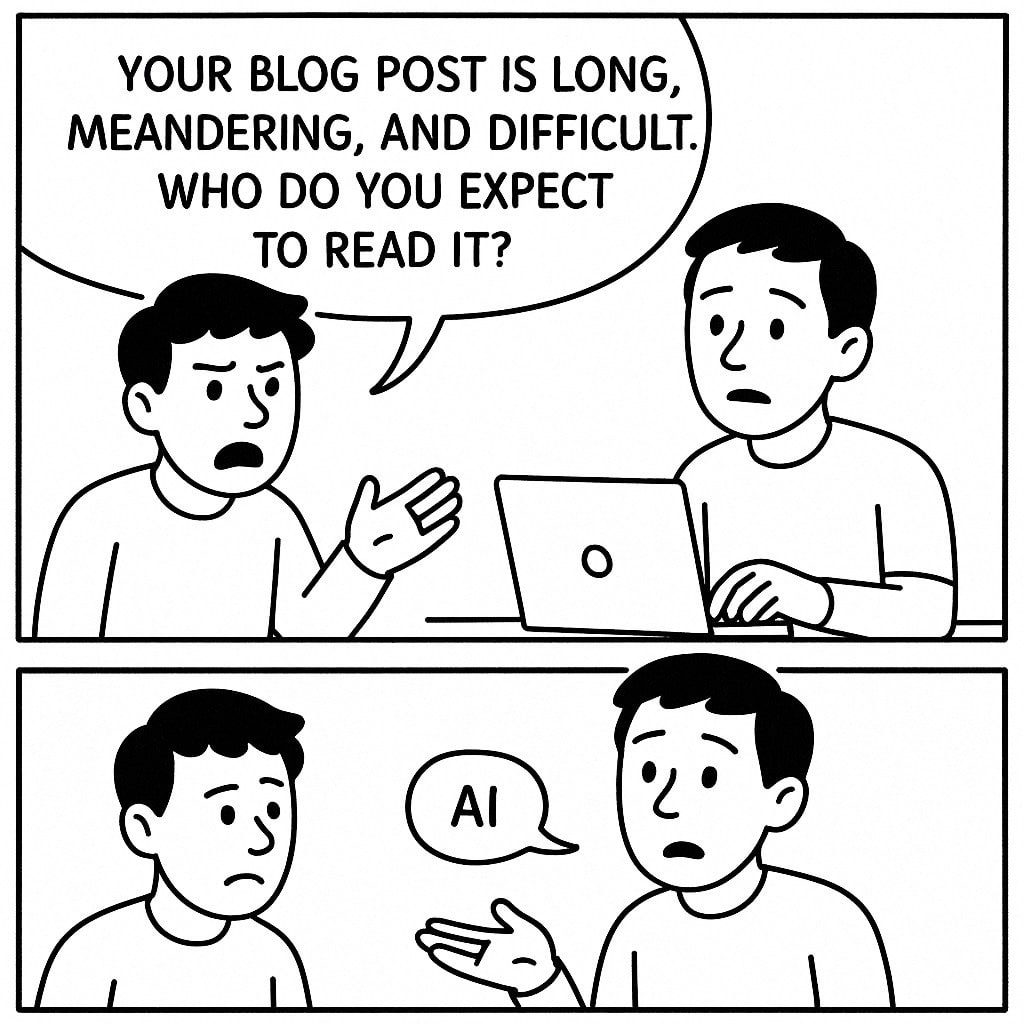I think it's easy to get disenchanted when writing posts or comments on blogs. I've particularly noticed this on the EA Forum and LessWrong.
Engagement can be highly random, and often rewards behaviors not correlated with quality. For example, posts like "10 more reasons to dislike Sam Altman" will often do a lot better than "My theoretical exploration of a new idea regarding AI policy."[1]
It's incredibly easy to have excellent work be completely ignored. I've experienced extreme frustration from this with some of my own posts, and have seen a lot of anger from others who feel unappreciated. I know many strong thinkers who quickly give up on writing anywhere.
But while it's tough to stand out in these crowds, I think it's also true that even a low-percentile post can have more value than many other things one can do with their time. I think it's easy to compare one's work to the most popular writers on the platform and be discouraged - but arguably this is a very competitive and high bar. A better bar would be to compare oneself to all the people who don't even bother to write - it's just that you don't see that when posting.
A part-time writer who gets 10 karma per month can easily be an intellectual heavyweight as a percentile of all people. I think that incredibly few people in the world (maybe 1%?) can produce semi-reasonable takes on these platforms. There is a high learning curve, and some of it asks that the author really be well-versed in a wide variety of topics.
Other various points:
1. If you're looking for interesting intellectual challenges, "Writing posts that even get 1-2 likes/upvotes" is often a higher bar than things like crosswords, debate, or many other things one can do.
2. Writing can be used as a way to keep oneself sharp and educated in a variety of topics. Again, it's not needed for others to read your work.
(Generated with ChatGPT)
3. There generally are few ways now that many people can remotely contribute to areas like existential risk. Median blog participation, while clearly worse than the top work, is still a lot better than most things one can do.
4. I generally find it much easier to talk to people who have some experience writing/commenting (or at least reading such work). I like talking about intellectual topics, and people who engage with these sources often have a high floor of knowledge.
5. In the future, I really hope to have better estimates of impact of all the things. I expect that small blog posts and comments will greatly under-perform some key areas (in terms of estimated impact), but over-perform the majority of actions people typically do to be useful.
6. Academics often prefer writing papers to blog posts. Papers can seem more prestigious and don't get annoying negative comments. To the degree that prestige is directly valuable this is useful, but for most things I prefer blog posts / Facebook posts. I think there are a bunch of "mid-tier" LessWrong/ EA Forum writers who I value dramatically more than many (far more prestigious) academics.
7. If you're curious to get into writing, I suggest it! Don't expect comments/upvotes, especially in the beginning. If you can stay with it, it can be fairly rewarding and valuable. Half of the challenge is developing a stubbornness so that you won't give up, when you compare yourself to others or see a lack of engagement.
8. A bit more evidence - a lot of top EA researchers basically can't blog in a way that they both feel good about and gets decent activity (maybe averaging 5+ karma, and/or 1 comment/post). Many of these people just don't bother. Doing this kind of writing can be really tough, even for much of the best intellectual talent.
9. I find it easy to get into unnecessary cycles of polish on my posts. The smaller your community/audience is, the more okay it might be to focus on quantity instead of polish. Plus, in terms of having AIs read the content (if you want that), polish probably matters less than one would expect. For example, you might notice that this post really isn’t organized. I’d expect if I tried to organize it, it would take me another hour or two, and I’m really not sure if it’s worth that.
(See a few other comments on the older Facebook post)
[1] I've previously discussed this as an issue of "Convenience". Some posts will directly help members of the community via things like "give this community higher status."



Yeah, makes a lot of sense! I think of mid-tier not as offensive since it's also just about Gwern spending all his time on writing vs. Kat Woods running an organization as well - huge respect to both of course for what they do.
Great post, hadn't seen that one before.
I'll also mention that I don't think SoTA philosophy happens in any way within any of the areas that Luke mentions. If this is classified as academic philosophy, then that's definitely fair. But if you look at where philosophy is developed the most (outside of imaginary parallel worlds) in my eyes, it's the summaries of academic work on consciousness (The Conscious Mind), computer science (Gödel, Escher, Bach), AI (Superintelligence), genetic foundations for morals (Blueprint for Civilization), empirical studies of human behavior in moral scenarios (Thinking, Fast and Slow), politics (Expert Political Judgment), cognitive enhancement (Tools for Thought), and neuroscience (The Brain from Inside Out), all of which have academic centres of excellence that are very inspiring.
Like, the place philosophers who truly want to understand the philosophical underpinnings of reality go today looks very very different than it did during the renaissance, in the sense that we now have instruments and mathematics that can measure ethics, morals, and the fundamental properties of reality.